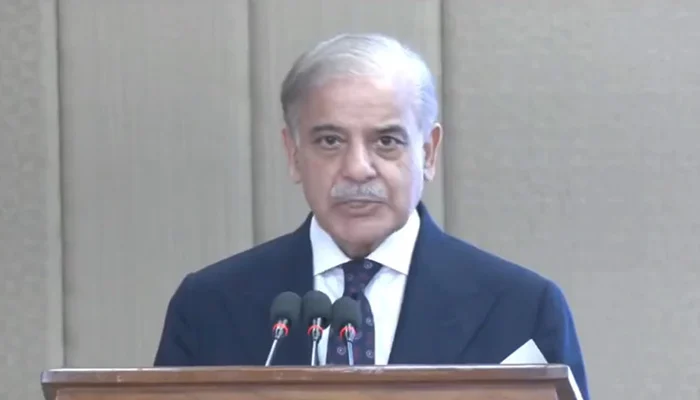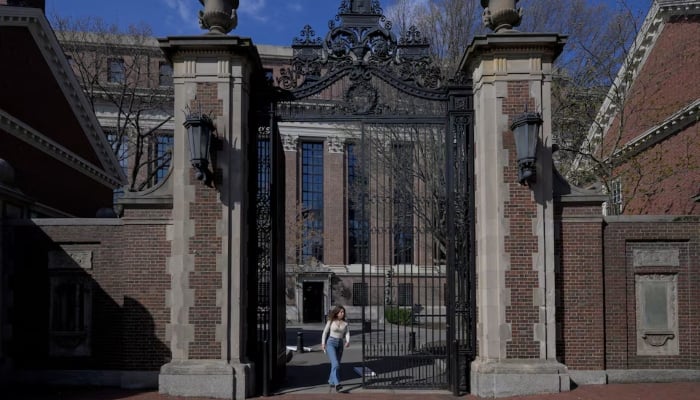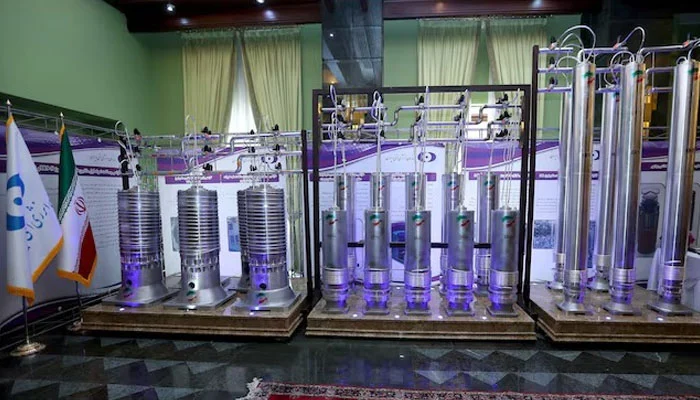ISLAMABAD: In a bid to boost the national economy, Prime Minister Shehbaz Sharif on Thursday said that he would soon roll out a five-year homegrown economic programme.
Addressing the launching ceremony of the Buna-Raast connectivity project during a ceremony in Islamabad, the premier said the ‘Home-Grown Economic Programme’ would envisage measures to revive the country’s economy by beefing up information technology, agriculture and other untapped sectors.
After discussions and mulling with the stakeholders for months, he said, a wide range of parameters for the programme had been finalised.
“Great work has gone into it. By next week or so, we will finalise it. I will go to the people to announce the programme for the next five years,” he remarked.
Highlighting the challenges of reforms in the Federal Board of Revenue (FBR) and power sector, Shehbaz said he was personally monitoring the FBR’s digitisation and that the government was hopeful of positive outcomes of power sector reforms.
“There is no magic wand. It is all about hard work, sacrifice, blood and sweat. Insha Allah, you will see we will have dividends and will find our place in the comity of nations through hard work, hard work and hard work,” he said.
‘Financial transactions through modern techniques’
Under the Buna-Raast connectivity project, the Raast payment mechanism is being linked with the Arab Monetary Fund’s (AMF) Buna system to facilitate millions of overseas Pakistanis in Arab countries to send remittances through a swift, affordable and effective mechanism.
The prime minister said that besides easing the remittance-sending process digitally, it would also help boost the country’s foreign exchange and further strengthen the already cordial relations between Pakistan and the Arab world.
Calling it a great step forward in promoting financial transactions through modern techniques, he said the project would expand the reach of Pakistan’s digital payment infrastructure.
“This signifies how 21st-century Pakistan is moving ahead by augmenting modern technologies in the people’s lives. This is the first cross-border real-time payment system linkage that will make remittances more affordable and accessible.”
Moreover, PM Shehbaz said that the project also held the potential to accelerate the connectivity into a future model of a wider payment system where transactions would take place from region to region with a potential of over $20 billion in annual payments.
He thanked the AFM, State Bank of Pakistan, Ministry of Finance, Bill and Melinda Gates Foundation, and Karandaaz for their support in launching the project.
Earlier, he also gave away the mementoes to AMF Chairperson Dr Fahad Alturki, SBP Governor Jamil Ahmed, Bill and Melinda Gates Foundation President Dr Anita Zaidi, and Karandaaz CEO Waqasul Hassan.
In his remarks, Finance Minister Muhammad Aurangzeb said that macroeconomic stability is taking root in Pakistan’s economy as manifested by reduced current account deficit, stable currency, improved foreign reserves, upgraded sovereign ratings, and reviving investors’ confidence.
He said the government is committed to infrastructural reforms and that its efforts were bearing fruits, though a lot more was yet to be done. “The remittances were on the surge with $3 billion received in July.”
About the Buna-Raast connectivity project, he said the digitalisation would help bring transparency and reduce leakages in remittances, taxation and the power sectors.
He said the project would put the country on a sustainable path and on the right side of the FATF.
Zaidi said the project would link the economies of Pakistan and the Arab world digitally, boost productivity and bring efficiency to systems.
Besides, it will also improve individuals’ lives making it cheaper to send money and improve families’ economic condition as 90% of remittance receivers were women.
She viewed that the project would facilitate, particularly women entrepreneurs enabling them to sell their goods and receive money digitally.




